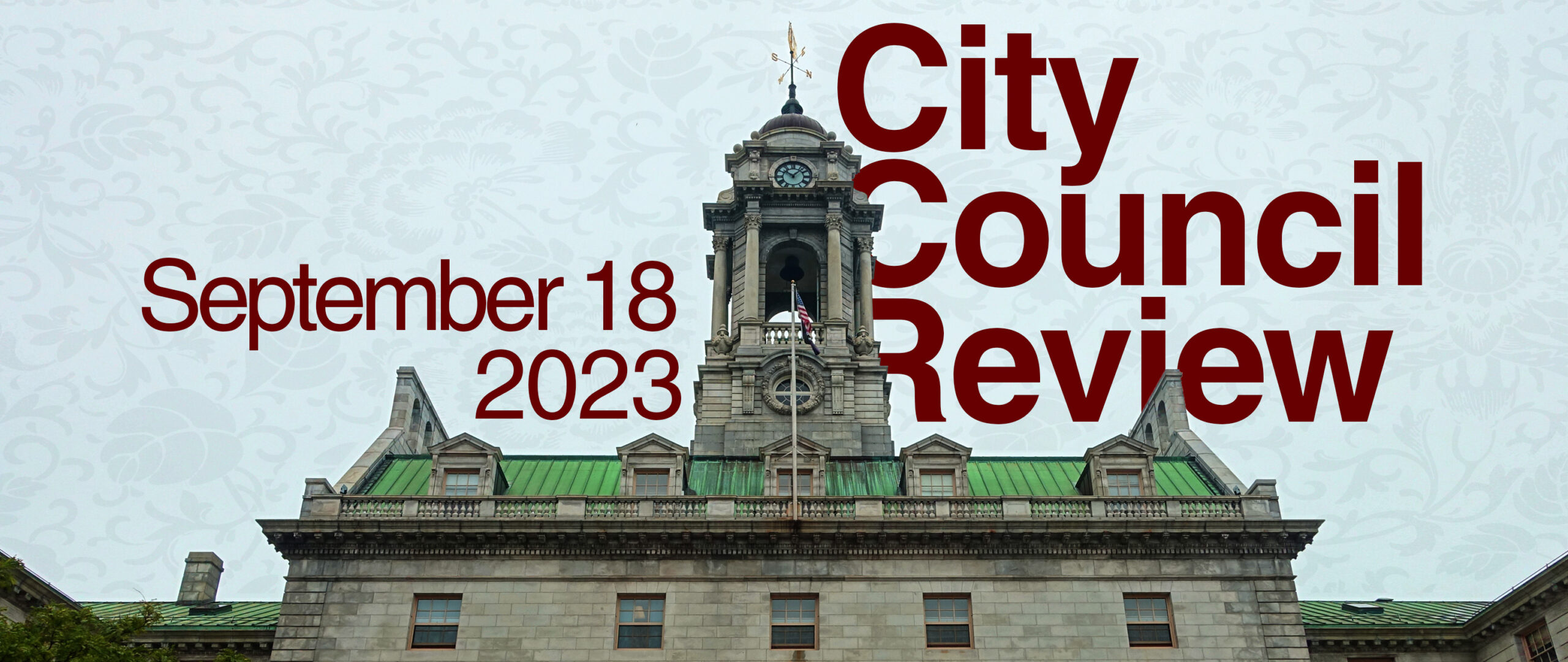The Portland City Council held its regularly scheduled Monday evening meeting on September 18th. Increasingly vitriolic and racist comments from Zoom pushed the Council to take aggressive measures while voting on the proposed Tourism Development District.
All councilors were present; Councilor Fournier attended the first part of the meeting via Zoom, later joining in person.
General Public Comment
Prior to opening the public comment period, Mayor Snyder reminded attendees that any public comment should be “germane to Council business,” and asked commenters to clarify the subject of their comment before offering it. A minor change to public commenting was also introduced: this evening, all in-person commenters would speak first, and only after this could Zoom commenters call in. Previously, comments alternated between in-person and Zoom.
Once Snyder opened the public comment period, a number of attendees came to the podium in chambers. Four East Deering residents voiced their opposition to the proposed development at 900 Ocean Avenue. Among their concerns were destruction of wildlife and damage to existing homes due to proposed blasting. Vincent Caliendo, of Ice Pond Drive, claimed that previous blasting in the area had already cost him $7,000 in repairs. Concerns about aesthetics and character also played a role, with neighbor Paula Doucette explaining that when deciding where to purchase a home, she had “wanted a quiet, rural area,” and that she opposed the influx of “up to a thousand people on what could be described as a country road.” Sarah Johnson concurred, and advocated for focusing new development only downtown, saying “We should be aligning with the densification of the urban core, and double down on that.”
George Rheault also commented in chambers. He began by asking the council to “step up [their] efforts” against those who have “cheapen[ed]” the public comment forum, seemingly referencing the ongoing phenomenon of right-wing and white supremacist troll comments. He also announced that the performance of city council has inspired him to run for mayor, as a write-in candidate. “Things that matter in this city do not ever really get addressed,” Rheault said.
Bill Higgins commented to share information about the Out of the Darkness suicide prevention awareness walk taking place on Saturday, September 23. An emotional Higgins added that he has become a vocal advocate for this cause following the suicide of his nephew. He encouraged members of the public to support the event, either as attendees or donors.
The remaining public comments came in via Zoom. Richard Ward was first and made his usual right-wing diatribe. An overtly antisemitic comment followed Ward, prompting Councilor Ali to make a motion to suspend Council rules and end public comment. A hasty vote resulted in a 5-4 split, with Councilors Fournier, Rodriguez, Pelletier, and Mayor Snyder voting against it. As a motion to suspend council rules needs a six-vote supermajority, the motion failed.

However, after another antisemitic public comment followed their vote, Dion took up the motion again. This time, Rodriguez and Snyder changed their vote, allowing the motion to pass 7-2.
Following the abrupt end to the open public comment period, Mayor Snyder addressed the elephant in the room. Snyder said that the Council has been consistently targeted by far-right hate speech comments since the year began. The possibility of returning to in-person only meetings is on the table – which would mean no Zoom comments, but also no virtual attendees at all, including remote attendance by councilors. Snyder reminded the council and the public that the council can’t “cherry-pick” what aspects of meeting styles they prefer.
Read The Portland Townsman’s recent opinion piece for a fuller breakdown of this issue.
Announcements and Proclamations
Moving on to Announcements, Snyder first acknowledged an active shooter threat earlier in the day at Casco Bay High School, which turned out to be a false alarm. Both Snyder and West gave their thanks to the team of first responders on the scene for their quick response.
Snyder also announced that the Side x Side Project Maine program, an arts integration professional development program for teachers, received $242,000 in Department of Education funding. She congratulated the recipients and encouraged support for the program.
Four proclamations followed. The first proclaimed the week of September 18th Diaper Need Awareness week. Snyder’s proclamation underscored how important a fresh diaper supply is for the health of infants and toddlers.
Next Snyder proclaimed September 30th, 2023 as a Day of Remembrance for U.S. Indian Boarding Schools. She thanked Councilor Fournier for her work bringing the proclamation forward and noted that she would read the proclamation in Fournier’s stead since the councilor was unable to join in person. The proclamation “recognize[d] the traumatic and harmful history of Indian Boarding Schools” across the United States and Canada, particularly in light of mass graves that have recently been uncovered at the sites of these schools.
Councilor Ali read the proclamation declaring September as African Heritage Month, underlining the diversity of the African diaspora and African Americans, as well as the 400-year-long history of Africans in the United States. Three people came forward to accept the proclamation from Mayor Snyder and gave brief remarks thanking the Council.
Councilor Ali also read the proclamation recognizing Rosh Hashanah and Yom Kippur. The proclamation recognized the history and place of Jewish people in Portland and the importance of these holidays.
Consent Items and Communications
Consent Item 36 declared October 1st the 32nd Annual Maine Marathon. Being the first opportunity for public comment since the Council cut the open comment period short, the agenda item prompted two more hateful troll comments. Given that the commentary was irrelevant to the agenda item at hand, Mayor Snyder cut the comments short. The consent item passed unanimously.
For communications items, Mary Davis, Director of Housing and Economic Development, spoke first. She presented the Council with the Consolidated Annual Performance and Evaluation Report, a required report as part of Portland’s federal HUD funding. Davis said little on the contents of the report, describing it as “a rather long and laborious report that talks about a lot of numbers and accomplishment data.” The report is available to the public here.
Communication 12, on the Encampment Crisis Response Team (ECRT), came from Director of Health and Human Services Kristen Dow. Dow informed the council that the ECRT would be focusing on the encampment at Marginal Way in the Maine DOT moving forward. As part of this work, Dow said, the ECRT is setting up portable toilets, sharps receptacles, and trash removal at the site. Responding to questions from the Council, Dow also shared that the team is working in collaboration with the state on this encampment and that no “resolution” date has yet been determined. Fire Chief Keith Gautreau chimed in to add that the After Action Report on the Fore River encampment site would be completed this week, following some delay.
Snyder reminded the public that another encampment workshop will take place on Tuesday, September 26th at 5:00pm. This workshop will take public comment.
Unfinished Business and Other Matters
Moving on to unfinished business, the Council took up Orders 256, 257 and 256, all concerning the proposed Tourism Development District. But what is this district anyway?
What is the TDD?
The proposed Portland Tourism Development District (TDD) is a new municipal authority which has the power to collect assessments – essentially an additional tax – on all eligible hotels inside of its boundaries, and to spend that money (with City Council approval) on a program of advertising, promoting, and improving Portland as a tourist destination. The city will leave the administration of this district to a “Development Program Manager,” and while hypothetically this could be anyone, this TDD was designed with a particular entity in mind: Visit Portland.
Visit Portland (VP) a non-governmental nonprofit dedicated to marketing Portland as a tourist destination, facilitating tourism and event-hosting, and promoting its local partner businesses. Currently, VP raises money through voluntary contributions from its partner businesses, but by levying this additional assessment on Portland’s largest hotels, VP hopes to use the TDD’s larger budget to more effectively advertise Portland as a top destination around the world.
A common, reflexive question about this proposal has been “Where would this district be?” Legally speaking, the TDD would be very similar to Portland Downtown, a district which levies an assessment on eligible taxpayers in the Old Port area to provide certain services. For example, if you’ve ever noticed trash cans or picnic tables with “Portland Downtown” branding, these are amenities provided by the district and paid for by this special tax. Portland Downtown’s boundaries look like this:
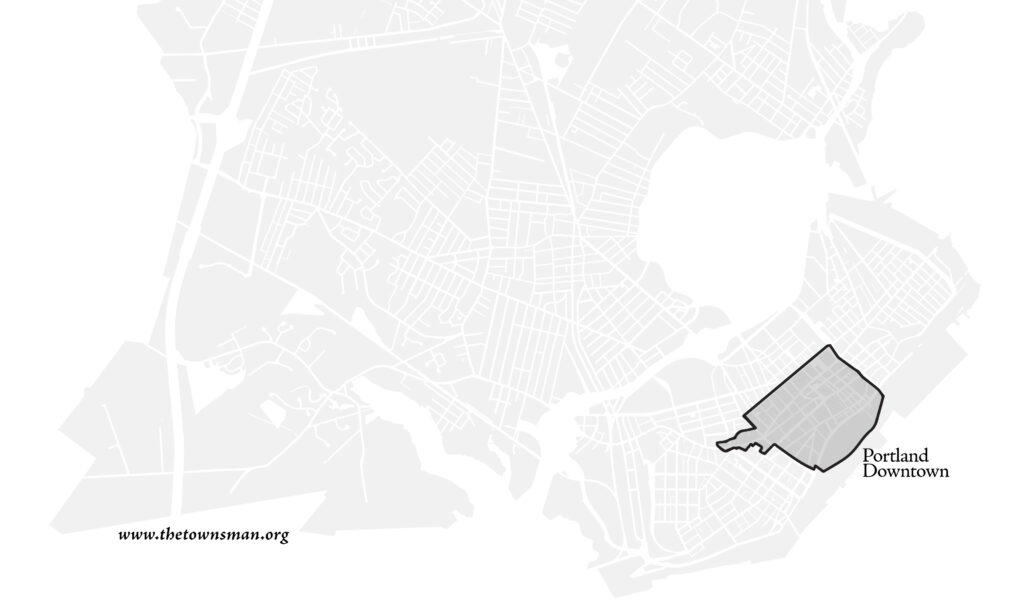
Similarly, the TDD would have boundaries within which it can levy its assessment, and these look somewhat like this:
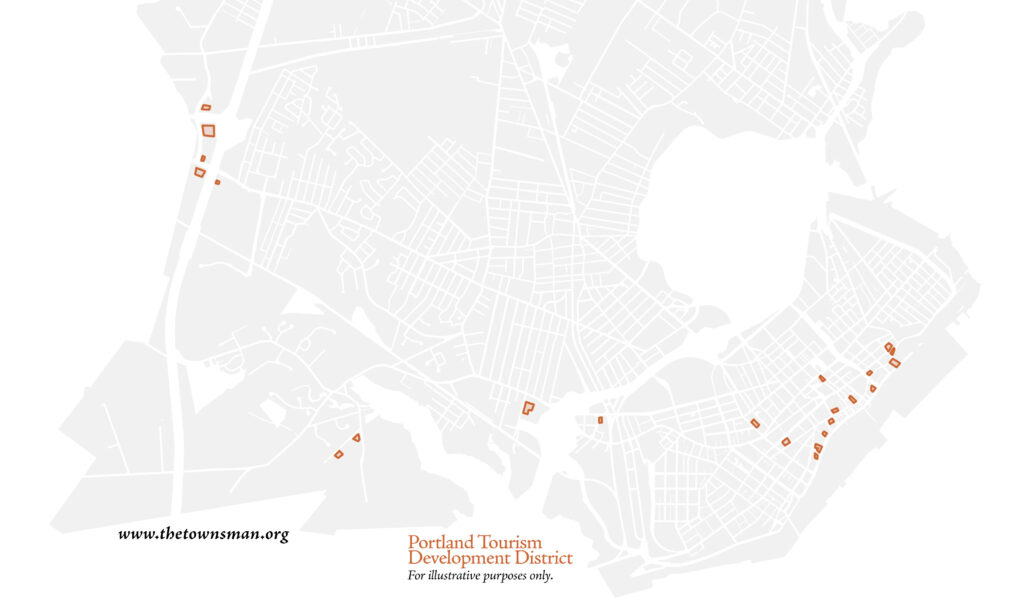
Needless to say, the TDD’s district boundaries lack the coherence of Portland Downtown. This is because the boundaries are set by outlining those parcels of land which are owned by the 23 hotels which would be subject to the assessment. In total, this amounts to about 49.4 acres. The difference in boundaries marks a significant difference between the TDD and Portland Downtown, as while the latter has a designated portion of the city to holistically manage, the Tourism Development “District” is truthfully a citywide project, and the boundaries are better understood as a tool to legally assess a new tax on hotels. This is useful context to explain the parade of small (and not so small) business owners lauding the benefits of this district to the entire city.
This assessment on hotels is pegged at 1.5% of gross revenue on room rentals. In other words, if a hotel generates $100,000 by renting rooms, for example, the hotel must pay $1,500 to the district at tax time. There’s been some media confusion over whether this assessment is optional, with WMTW describing the district as “allowing” hotels to levy this fee – but it is in fact mandatory.
Another point of media confusion is that this fee would be assessed on “all” hotels with forty or more rooms. This is, in practice, true, however only because the boundaries of the district have been described as encompassing every non-seasonal hotel with forty or more rooms. If a new hotel with 40 or more rooms were to pop into existence somewhere in the city, this hotel would not have to pay this assessment, because the TDD would have no authority over it – at least until the boundaries are amended by City Council to include it as well.
According to the proposed plan, the money raised by assessing this 1.5% contribution from the district’s hotels would be mostly split two ways, with half going towards the administration of the district, and half towards marketing and advertising campaigns to attract tourists to Portland. Some additional funds are also set aside for creating reports on expected return on investment, and for “Business Practices & Workforce Initiatives.” This last concern may include services such as “programs to combat congestion,” “programming to sustain demand,” “infrastructure or capital improvements,” and “to build programs to support a sustainable workforce.” While this might sound broad, there are significant constraints on what the TDD can invest in; for example, it cannot spend money on commercial improvements or on transportation.
The total yearly budget of the TDD is expected to be around $2.5 million at first, nearly triple VP’s previous budget of around $1 million. While the day-to-day managing of the TDD will largely be at the discretion of VP as Development Program Manager, it shall remain under the supervision of city government, and its budget must be approved each year by the City Council.
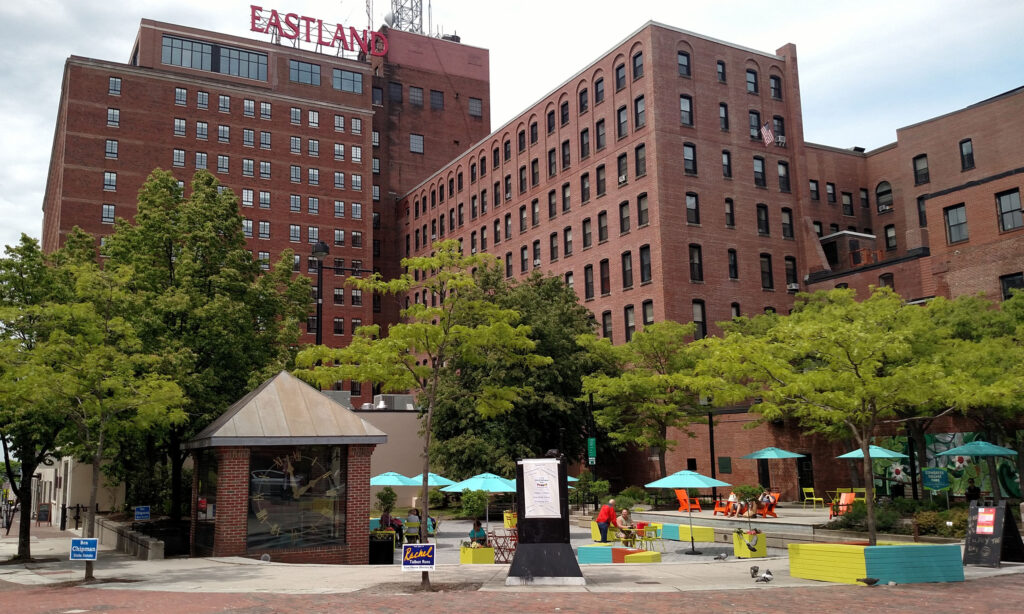
An Attempt to Discuss the TDD
An outpouring of public comment took place in council chambers, nearly all in support of the proposal. In total, 26 people spoke in favor of the Tourism Development District as an essential tool to promote tourism in Portland. Many of these supporters, such as President of the Maine Mariners hockey team Adam Goldberg, cited the instability of hospitality work during winter months, and hoped that the District’s marketing strategies would encourage more wintertime visits.
Many commenters suggested that by bringing more tourists to Maine, the city would gain new residents. Director of Mayo Street Arts (and puppeteer) claimed that Portland’s population was too small to adequately support the performing arts without large amounts of tourism. Sean McCarthy, owner of a “startup marketing agency,” stated that Portland’s relatively small pool of workers resulted in employees being unwilling to keep one steady job, and that “the high turnover rate is really tough on everyone.”
Proponents of the measure also hoped that the initiative would help diversify Maine’s population, such as Ali Gill of Uncommon Hospitality lamenting that “Maine is the 2nd whitest state in the union, and we could be doing so much more to change that.” Lisa Jones, owner of Black Travel Maine, also stressed this point, sharing that she had “discovered” Maine in 2020 and moved here during the pandemic, she asked herself “Why don’t more black and brown people know about Maine?”
Most of all, the commenters emphasized how tourist dollars were essential to Portland’s economy. Donato Giovine, owner of Gorgeous Gelato, through his thick Italian accent stressed how grateful Portlanders ought to be to the tourists who come here. Eamonn Dundon, of the Portland Chamber of Commerce, admitted that “tourism can harm a city, if it’s done in a transactional way,” but again repeated that Portland needed more tourism to be prosperous, and believed this district would help in responsibly managing it.
Nearly all of the supporters were business owners who would stand to benefit from the proposal.
George Rheault was the lone dissenter in chambers. He acknowledged the challenges that the tourism industry faces during winter months, but, he added, “we are literally promoting a place that doesn’t even really have capacity for [the population] we have now.” He urged the council to postpone their vote.
At this point, Mayor Snyder moved to Zoom for additional public comments. The commentary from Zoom struck a very different chord than the in-person comments. Four commenters were openly white supremacist in nature, profanely expressing disdain at the idea that this measure would bring more people of color to Maine. These commenters were also increasingly aggressive with Mayor Snyder as she attempted to curtail their comments, escalating the tension in the room to such a point that the Council voted unanimously to move into executive session. This itself required public comment, which brought on more violent and profane commentary. Councilor Trevorrow then moved to suspend public comment on the item, which was met with unanimous passage; around 7:30pm, members of the City Council left chambers to enter executive session.
Stunned attendees remained in chambers, awaiting word on the fate of the order. Over an hour passed before the Council returned to chambers at 8:36pm. It is unknown what the councilors discussed during this time, but presumably it concerned the ongoing brigade of Zoom trolls.
Regaining Control
Resuming where they had left off, the Council again voted to suspend any remaining public comment on the order, a move spearheaded by Councilor Dion. The support for his initiative was unanimous.
Having put comments behind them for the evening, the Council took up the matter at hand: whether or not to pass the proposed Tourism Development District.
Two amendments, sponsored by Councilor Ali, were the first matters addressed. One specified that 10% of the funds spend on advertising would be directed at “BIPOC and/or LGBTQ+ markets.” The other made a number of minor changes, mostly tweaking figures and schedules, but notably it also now excluded the Inn at Diamond Cove, a hotel on Great Diamond Island, with the justification that it was only seasonally active, and not a year-round hotel.
Both amendments passed unanimously with no discussion.
On the broader contents of the orders, the Council had more to say. Rodriguez asked about what kind of administrative work and staffing would be required to implement this measure; Brendan O’Connell, Finance Director responded that it would involve a relatively simple administrative process and no additional staff. Fournier, now present in chambers, asked how the BIPOC and LGBTQ+ markets would be identified; Mary Davis responded that the Visit Portland board would oversee this matter. Zarro and Ali asked Davis about how money assessed through this program would be spent; Davis explained that 10% would be directed to the city for it’s budget process, and the remaining 90% would be spent be at the discretion of the TDD and its managing entity, Visit Portland, with City Council approval of general budgets. She added that the Council could amend this going forward if it so chose.
Correction 9/27/2023 – A prior version of this article inaccurately described the way that the district’s funds would be appropriated.
Zarro also asked if passing this measure would prevent or diminish the possibility of a future local option sales tax, to which Phil Saucier, outside counsel from Bernstein Schur, responded that it would not. A local option sales tax (LOST) is a mechanism which allows municipalities to impose additional sales taxes on local purchases, usually towards specific ends. LOSTs are not legal in Maine, but it has been proposed at the state level to change this. The inability for municipalities to impose LOSTs is part of what makes districts such as the TDD and Portland Downtown attractive options for Maine cities.
Differing Principles
After all questions had been answered, each Councilor gave their opinion on the matter. Rodriguez came out against the TDD, his view being that the tourism industry is thriving and questioned the wisdom of delegating government-like authority to an autonomous district run by Visit Portland, which he saw as threatening Portland’s governmental capacity. He also questioned whether or not tourism was the way to diversify Portland, pointing out that many people of color are systemically disenfranchised and thus unable to afford a Maine vacation. “I am hesitant to call tourism the solution to any of [the city’s] problems,” he summarized.
Dion countered Rodriguez’s view, supporting the measure. Though he said he was “suspicious” of how many visitors go on to become residents, he believed the TDD was a step in the right direction in terms of bringing profits to Portland. Dion noted the success of Quebec City in promoting itself as a wintertime tourist destination, and believed Portland could follow suit. He also pointed to the success of the Portland Downtown development district, noting how much the area has changed in recent decades. “Big changes come with small steps,” said Dion.
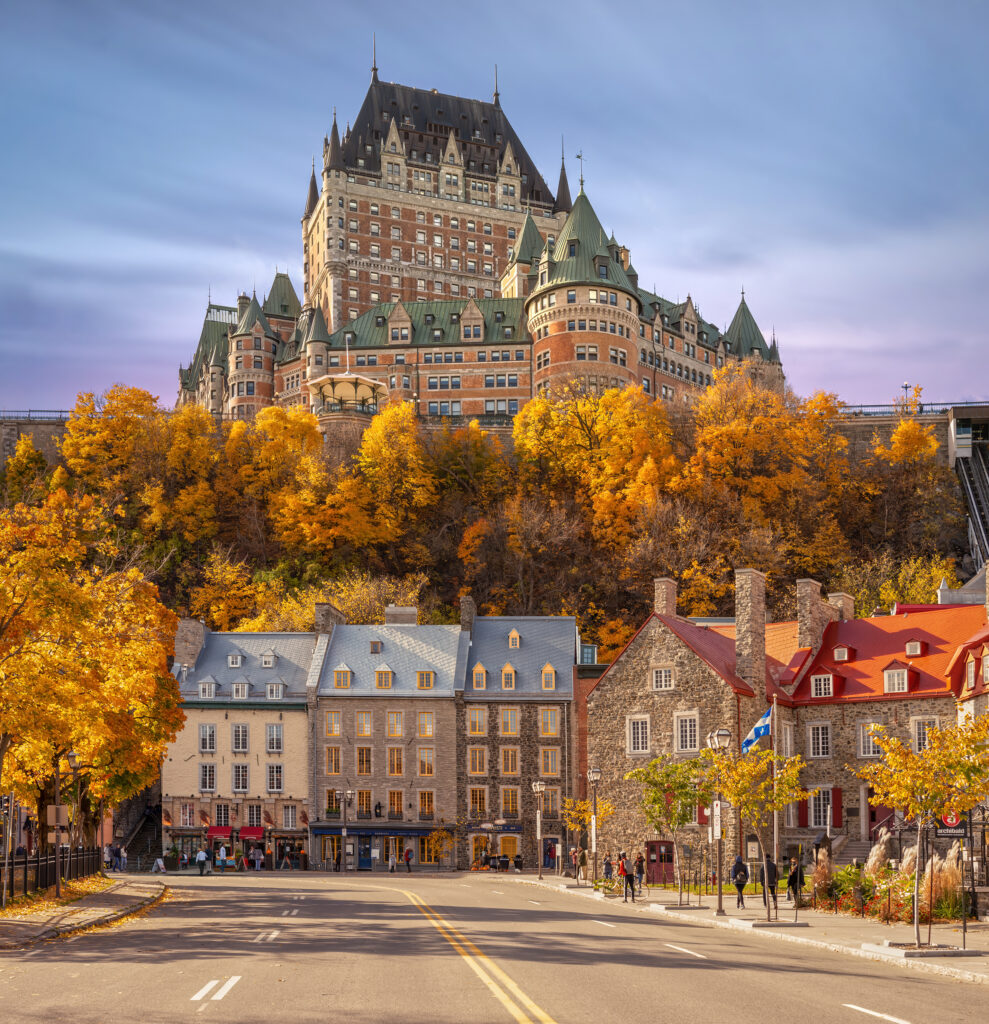
Councilor Ali echoed Dion’s sentiments, emphasizing the challenges that small business owners face during the winter.
Pelletier voiced her opposition to the district, failing to understand why the city should be prioritizing such a project given the bevy of other pressing issues facing the council. She added that Maine is a predominantly white state by design, in part due to tourism marketing efforts that aimed to attract white tourists, a sentiment which, she pointed out, was echoed during the public comment period. Pelletier went on to say that more should be done to ensure the safety and wellbeing of Portland’s current Black population, rather than trying to diversify its visitors.
Trevorrow spoke next, agreeing with Rodriguez’s sentiment that tourism was not an industry that needed bolstering. She also wondered if passage of this order would reduce the likelihood of a local option sales tax down the line.
Fournier also voiced opposition to the TDD, adding that more hospitality jobs would be hard to fill without sufficient housing supply for that workforce. She also expressed skepticism at the diversity investment, believing that some people were only concerned with attracting “the right kind of tourist.” “Everything is not lining up for me to feel good about moving this forward,” concluded Fournier.
Zarro chimed in next, noting his own experience as a small business owner. He agreed with the commenters that slow months are hard on the tourism economy. “There are parts I like and parts I don’t,” he said; but, believing the measure to be “a step in the right direction” for the local economy, he voiced his support for the measure.
Phillips was ambivalent; she noted that addressing concerns about the safety of people of color in Portland should come from city and police policy, not tourism. She also opined that the matter of housing should be addressed regionally, not municipally. Ultimately, Phillips said that she was “really and truly torn” on the order at hand.
Snyder was the last to comment, summarizing her opinion as a “yes, and” approach. She acknowledged that this district would not solve the biggest problems facing Portland, but that shouldn’t mean that the matter ought to be disregarded altogether. She added that not everything on every agenda would be specific to the most pressing issues.
When it came time to vote, Fournier, Rodriguez, Trevorrow, and Pelletier voted no; Dion, Ali and Zarro voted yes. With Snyder having already indicated that she would support the measure, Phillips’ vote became the clear tiebreaker. She first said “Maybe” before nervously laughing. A long pause preceded her decision, but ultimately she voted yes, allowing the orders to pass 5-4.
A Swift Close
The council voted unanimously to postpone the remaining orders, 32 and 33, which had the side effect of preventing any public comment for the rest of the night. The remaining orders were first reads concerning a $10,000 donation for Congress Square Park and accepting a number of grants for historic preservation. The meeting was then adjourned at 9:43pm.
Erica Snyder-Drummond – Erica is a proud Portland resident, documentary filmmaker, and baker. Previously she has been a campaign canvasser, an immigration advocate, and a server. You can see more of her work at www.ericajsd.com.
With contributions from editor Ashley Keenan.


